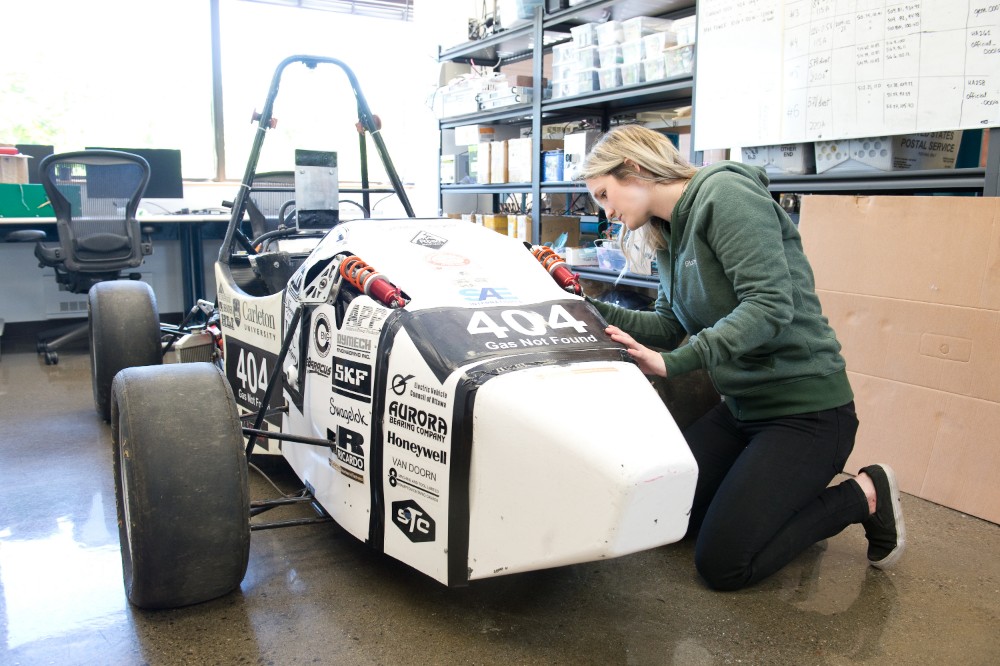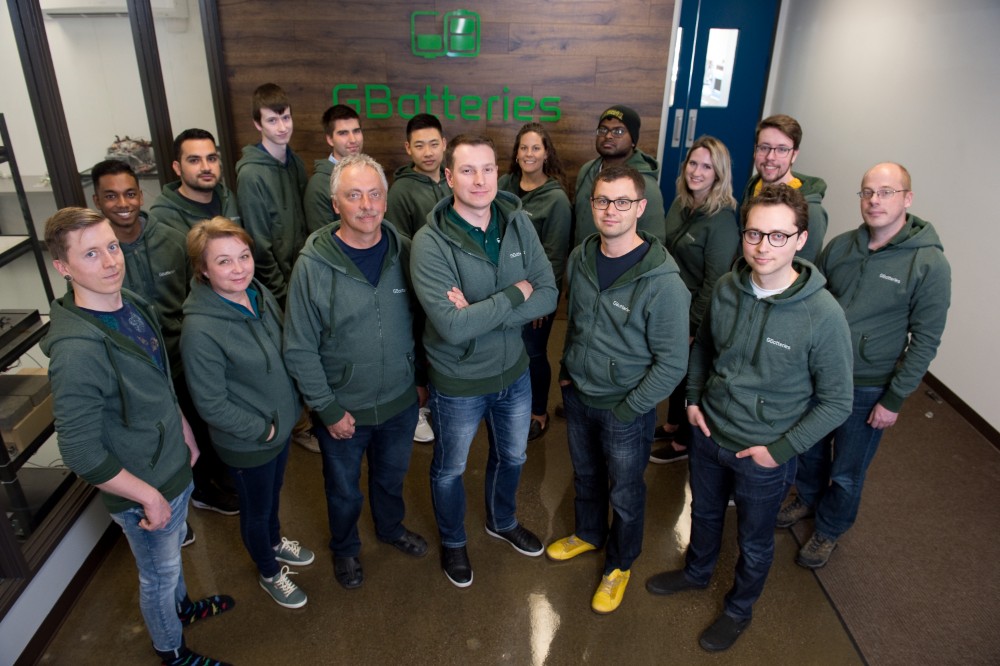Kostya Khomutov’s biggest problem is non-believers.
It’s a common obstacle for startup founders that only gets bigger the more impossible the problem they’re looking to solve.
Connect your alarm clock to your coffee pot for an automatic fresh cup first thing in the morning? Easy enough to imagine.
(Sponsored)

Iconic spaces, lasting impressions
The Canadian Museum of History and the Canadian War Museum offer more than beautiful spaces; they provide meaningful settings celebrating heritage, culture and design. An architectural landmark overlooking Parliament Hill

OBJ launches the 2026 Executive Report on Cornwall
Cornwall has emerged as one of Eastern Ontario’s most compelling locations for business investment, thanks to a combination of affordability, strategic positioning, and a steadily growing economic base.
Charge an electric vehicle’s battery in the time it takes to fill up a tank of gas? Now that’ll make a non-believer out of any seasoned engineer.
“Skepticism is just through the roof,” Khomutov, the CEO of Ottawa-based GBatteries, tells Techopia.
GBatteries’ technology purports to overcome a particular barrier to electric vehicle adoption; but it’s also an issue that affects smartphones, power tools and any tech that relies on battery power: the time it takes to recharge. In Khomutov’s dream, the company’s unique combination of software algorithms and hardware adapters could revolutionize the emerging electric vehicle industry and other adjacent sectors.
Fast and steady
It’s not actually challenging to charge a battery quickly – engineers have had that covered for quite a while now. The issue is fast charging without prematurely killing the battery. The faster energy flows into a battery, the more quickly that cell will degrade and lose capacity, shortening its overall life.
“Let’s say if you would fill up a tank of gas in your vehicle, with each and every fuel-up, the tank would shrink in size,” Khomutov says. “When you try to fast charge, you actually reach the end of life much sooner.”
Not only that, but traditional fast charging can be dangerous. The faster energy is flowing into a battery, the more it piles up and damages the cell, generating heat and – if left unchecked – eventually leading to catastrophe.
GBatteries solves this problem through pulse charging. Rather than force all of the energy into the battery at once, a self-learning algorithm monitors the process and sends pulses of energy through in batches.
Think of it like a bouncer at a bar: the algorithm lines up individual pulses and monitors the flow of traffic into the cell – or club, in this instance. It sends a few through at a time so as not to overwhelm the battery, and keeps the charging process running smoothly.
“You make it more organized, more efficient,” Khomutov says. “You’re able to push more people through without damaging anybody, or anything around.”

Making believers
In addition to making it faster, GBatteries’ fast-charging protocol reduces the overall resistance and heat generated in the transfer. The company demoed its technology on a battery pack at the Consumer Electronics Show this past January and was startled when a man ran up to GBatteries’ station and ripped the pack from its port, accusing the company of gross incompetence.
It was only when he held the battery in his hands and realized it wasn’t overheating that he started to listen. Even then, Khomutov says, potential clients require years of testing and data to be convinced.
“When people that spend years working on … how to solve the problem, they see somebody solving it, they just don’t want to believe,” he says.
“One of the biggest barriers for us to commercialize our technology is people don’t believe their own eyes.”
Kostya Khomutov, CEO of GBatteries
“One of the biggest barriers for us to commercialize our technology is people don’t believe their own eyes.”
Despite the skepticism, GBatteries has been able to make believers out of a few pilot customers and major funds: Airbus Ventures, Y Combinator and some well-heeled Silicon Valley angels are all on board for the ride, though GBatteries doesn’t disclose how much total financing it has raised.
Investor confidence may come down to the calibre of GBatteries’ 20-person team. The startup has Bart Riley, battery market expert and founder of A123 Systems, as its chairman and counts former vice-presidents of Qualcomm and Synopsys among its advisory board members. The firm was co-founded by father-son team Nick and Tim Sherstyuk.
Not the only ‘crazy people’
Khomutov says there’s another company in the Valley, Qnovo, that’s looking to compete in the fast-charging space. He’s not bothered in the slightest to have a bit of competition, however – in addition to the years of in-house testing GBatteries conducts from its Ottawa offices, a competitor is proof positive that there’s something to the technology.
“We’re not the only crazy people out there,” he says.
GBatteries has secured pilot projects with automotive companies and smartphone manufacturers, but its best chance to test its tech on the track might be at Khomutov’s alma mater, Carleton University. The startup announced a partnership with the local post-secondary institution in June to revive the Ravens Racing electric vehicle program.
GBatteries is providing paid internships to automotive engineering students at the university to get an electric vehicle competition-ready; while Carleton’s program has placed well in global competitions for combustion engines, the team hasn’t entered an EV contest since 2015.
“This may potentially be one of the first test beds for us to demonstrate super-fast charge on an electrical vehicle,” Khomutov says.
The chicken or the egg
Even with fast charging, experts argue numerous barriers to electric vehicle adoption still remain.
Available charging stations are a big one, but Khomutov believes the GBatteries approach will encourage developers around the world to build more infrastructure.
Technology that could position a charging station as an equal to a petroleum pump would be a major differentiator for an operator hoping to stand out, Khomutov argues. Selling the company’s adapters to charging stations could even lead to a “premium lane” for electric vehicle drivers willing to pay for the privilege of filling up their car’s battery in record time.
Khomutov believes GBatteries’ technology could open up opportunities not only for his company, but for an entire market of fast-charging applications. All he has to do is make one believer at a time.
“It’s really chicken and egg right now. As we demonstrate our technology, we strongly believe that we’ll accelerate the whole infrastructure.”






